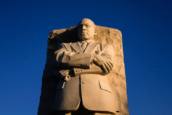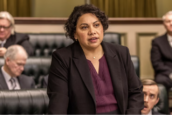
Altmann affirms signs of hope in the ecumenical movement
“The WCC can be and still is prophetic today,” said the Rev. Dr Walter Altmann, moderator of the World Council of Churches (WCC) Central Committee, reflecting on highs and lows in the ecumenical movement and on the identity of the WCC.
In a Central Committee session on August 29, Altmann spoke of “sailing” the ecumenical movement, traditionally symbolised as a boat, and how its journey continues towards “transformation and overcoming injustice”.
The 150-member Central Committee is currently meeting at the Orthodox Academy of Crete in Kolympari, Greece.
The AGAPE (Alternative to Economic Globalisation Addressing Peoples and Earth) study process of the WCC, said Altmann, has proved that “the major global economic structure shows a reality that excludes most, benefits a few privileged” people and destroys the earth’s natural resources. He stressed that outcomes of the AGAPE study are significant amidst the current European financial crisis.
“We are meeting in Greece, the country hardest hit by the crisis in the Euro community. Regardless of the errors that may have been committed by the political practice of Greece, there is no doubt that they came associated with a global policy of unfettered markets and limitless financial speculation,” he said.
Altmann added that “many, if not most, of the statements of the AGAPE background document about the ongoing and potential consequences of economic injustice were sadly proven in recent years.”
Speaking on the churches’ calls for a strong and effective Arms Trade Treaty, Altmann expressed hope for the process despite negotiations being postponed at the United Nations Conference on the Arms Trade Treaty (ATT) in July this year. He led the ecumenical delegation at the UN conference in New York.
“For decades, churches around the world have been calling for an Arms Trade Treaty that would protect people from irresponsible arms transfers. We will not let go of this demand,” Altmann observed, quoting the WCC general secretary, the Rev. Dr Olav Fykse Tveit, from his message following the ATT conference.
Similarly, Altmann shared the frustration felt by many over the lack of strong commitments at the United Nations Conference on Sustainable Development, also known as Rio+20. Even so, he spoke about positive aspects of the conference.
“The WCC, alongside other partner organisations, such as the Ecumenical Advocacy Alliance and ACT Alliance, underlined the positive aspects of the outcome document of Rio +20. These included the adoption of language that values rights, including very specific ones, such as the right to water and sanitation,” he said.
He went on to say that the Rio+20 document does offer “material for our organisations to continue their advocacy work around the intertwined themes of human and environmental rights”.
Altmann also expressed appreciation for the Second Vatican Council in his report, saying, “There is no doubt that the Second Vatican Council was nurtured largely by the ecumenical biblical and theological research of those recent years, including discussions about Tradition in the Faith and Order Commission.”
He called ecumenical initiatives with the Roman Catholic church important steps towards mutual recognition along the way to Christian unity.
Commenting on struggles of churches for justice, peace and transformation, Altmann reflected on the theme of the WCC’s upcoming 10th Assembly in Busan, Korea.
“The theme ‘God of life, lead us to justice and peace’ is an invocation of God, knowing that we are in the midst of a journey and we cannot stand still, and we must not resist. On the contrary, we must let God push us further on the path of justice and peace.”



























































